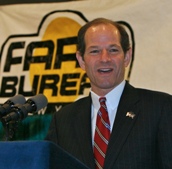In an interview with ACM Queue, Mary Lou Jepsen, former CTO of the One Laptop Per Child (OLTP) project describes some of the technical challenges to providing Internet connectivity in developing nations:
The whole machine is a different class of computing environment, and it’s aimed at a different set of users. You can’t get there by taking a classic office productivity laptop and cost-reducing it.
It’s pretty hot in much of the developing world, so we’ve designed a laptop that can take extreme heat …. half the kids in the world don’t have electricity at home. Half the kids. Eighty percent of the schools that we’re going into don’t have electricity. So we had to design a laptop that was also the infrastructure. It has mesh networking …. solar repeaters and active antennas …. If one laptop in a village is connected to the Internet, they all are.
There’s truly so little power in the developing world. If a school is wired, it tends to be on a generator, and there’s one 60-watt light bulb per classroom. Generators make really weird power. Usually what comes out of the wall in most countries is 50 or 60 hertz, or somewhere in between. With generators, the frequency of the AC power can go down to 35 hertz. We therefore had to do really interesting power conditioning on the AC adapter. The laptop itself can take between negative 32 volts to 40 volts, and work well with anything from 11 to 18 volts. You can plug a car battery into it. You can plug a solar panel into it. A hand crank can produce enough energy to power the battery for some time, as can a bicycle or a windmill. India has this cow-dung system that creates methane that drives a generator. Even that will work.
Via Slashdot


 Verizon
Verizon